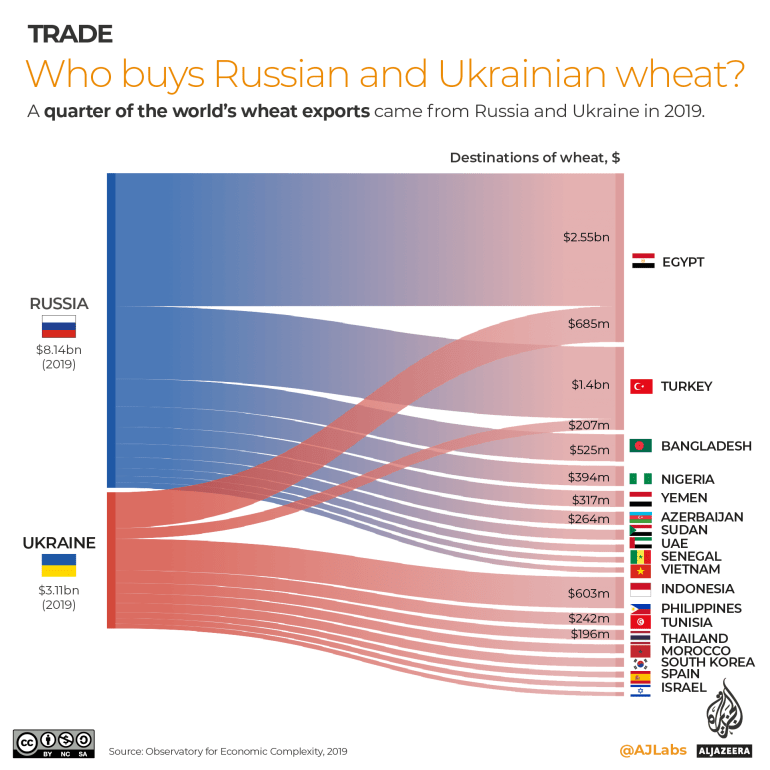Mon 21 March 2022:
The war between Ukraine and Russia, two of the world’s top crop producers, could lead to a food crisis “on the global” scale, French farming minister Julien Denormandie said in Brussels on Monday ahead of a EU agriculture meeting.
EU ministers will discuss the food situation with their Ukrainian counterpart in a video call, he added.
A World Food Programme (WFP) official said on Friday that food supply chains in Ukraine were collapsing, with key infrastructure such as bridges and trains destroyed by bombs and many grocery stores and warehouses empty.

OECD warns
Last week the Organisation for Economic Co-operation and Development (OECD) warned that Russia’s war in Ukraine will disrupt commerce and clog up supply chains, slashing economic growth and pushing prices sharply higher around the globe,
In a grim new assessment, the 38-country OECD said that over the next year, the conflict would reduce gross domestic product (GDP) — the broadest measure of economic output — by 1.08 percent worldwide, by 1.4 percent in the 19 European countries that share the euro currency and by 0.88 percent in the United States.
The Russian invasion came at a time when prices were already surging and supply chains were snarled – fallout from an unexpectedly strong recovery from the coronavirus recession. The OECD, which in December forecast global inflation of 4.2 percent this year, predicted that the conflict would drive up prices by 2.47 percentage points worldwide over the next year.
“Just as the world economy appeared to be emerging from two years of the COVID-19 crisis, a brutal and devastating war has broken out in Europe,” said Laurence Boone, the OECD’s chief economist. “We do not yet know how this will fully play out, but we do know this will hurt the global recovery and push inflation even higher.”
Russia and Ukraine account for less than 2 percent of global GDP, but are heavyweight producers of specific commodities. Together, for instance, they export a third of the world’s wheat, raising concerns that countries like Egypt and Lebanon that rely on those affordable wheat exports for bread and other food staples could face shortages in the months ahead.
Russia supplies 27 percent of the European Union’s crude oil imports and 41 percent of its natural gas imports. Energy prices have surged since January.
“The impact on energy markets and prices is particularly acute,” said Mathias Cormann, the OECD’s secretary-general. ‘‘The global economy is now experiencing a massive energy price shock.”
Russia is also a big producer of potash that is used in fertiliser, palladium that is critical for cars, mobile phones and dental fillings and nickel used in electric car batteries and steel.
Hit by sanctions, Russia and its economy have absorbed a huge blow. The rouble has plummeted in value, and Russian oil is selling at a big discount on world markets.
NEWS AGENCIES
____________________________________________________________________________________________________________________________________________
FOLLOW INDEPENDENT PRESS:
TWITTER (CLICK HERE)
https://twitter.com/IpIndependent
FACEBOOK (CLICK HERE)
https://web.facebook.com/ipindependent
Think your friends would be interested? Share this story!





